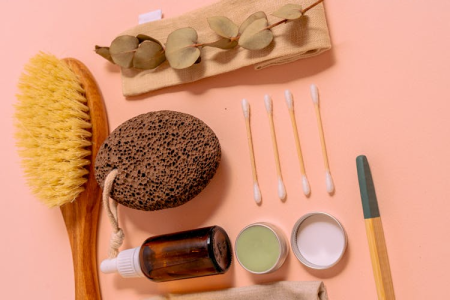One in eight Aussies can’t afford basic hygiene—let’s talk about it
By
Maan
- Replies 0
Millions of Australians are quietly suffering behind closed doors.
They’re skipping soap, deodorant—even toothpaste—just to cover rent or food.
And for many, it’s the first time they’ve ever faced such a basic struggle.
Hygiene poverty—the inability to afford essential personal or household cleaning items—has taken hold across the country.
A recent survey conducted for charity Good360 Australia found that one in eight people had recently gone without basic hygiene or cleaning products.
Alison Covington, Good360’s managing director, said the findings exposed ‘the heartbreaking reality that millions of Australians are struggling to afford everyday basics’.
The impact, she added, was far more than just physical.
‘Hygiene poverty can cause feelings of low self-esteem, embarrassment and shame, and make it difficult for people to maintain their health,’ she said.
‘It takes a devastating toll on people’s mental and physical well-being.’
The nationally representative survey of 1,000 Australians revealed that one in seven had struggled to afford cleaning products over the past six months.
Meanwhile, 12 per cent of people had experienced hygiene poverty for the first time.
Another 19 per cent feared they would soon be unable to buy essentials like shampoo, sanitary pads or detergent.
According to Covington, when people can’t afford basic personal care, they often withdraw from work, school or social life altogether.
The situation disproportionately affected women and young people.
Almost one-third of young people and 21 per cent of women reported concerns about affording hygiene and cleaning items, compared to 16 per cent of men.
Liverpool Women’s Health Centre, which assists over 5,000 women per year in Sydney’s south-west, had seen the surge in demand up close.
CEO Kate Meyer said: ‘Every day, women that you wouldn’t necessarily expect to need a deodorant or a packet of soap are taking it.’
She recalled one elderly client who was ‘over the moon with gratitude’ after receiving incontinence products.
‘That’s horrifying for us because these are things that she needs for her everyday living,’ Meyer said.
‘They shouldn’t be something that gives her such joy.
‘They should be things that she’s able to get in her groceries every week.’
Good360 operates by redirecting surplus consumer goods to charities and schools across Australia, helping those in need while also preventing unnecessary landfill waste.
This isn’t just about hygiene—it’s part of a wider pattern where people are being forced to go without life’s everyday essentials.
When basic self-care becomes a luxury, it often means other important things are being sacrificed too.
If you’re wondering just how far this trend goes, a new report breaks it down.
Read more: Aussies skip life’s basics as new report reveals what’s being sacrificed to make ends meet

When soap becomes a luxury, what does that say about the cost of dignity in Australia today?
They’re skipping soap, deodorant—even toothpaste—just to cover rent or food.
And for many, it’s the first time they’ve ever faced such a basic struggle.
Hygiene poverty—the inability to afford essential personal or household cleaning items—has taken hold across the country.
A recent survey conducted for charity Good360 Australia found that one in eight people had recently gone without basic hygiene or cleaning products.
Alison Covington, Good360’s managing director, said the findings exposed ‘the heartbreaking reality that millions of Australians are struggling to afford everyday basics’.
The impact, she added, was far more than just physical.
‘Hygiene poverty can cause feelings of low self-esteem, embarrassment and shame, and make it difficult for people to maintain their health,’ she said.
‘It takes a devastating toll on people’s mental and physical well-being.’
The nationally representative survey of 1,000 Australians revealed that one in seven had struggled to afford cleaning products over the past six months.
Meanwhile, 12 per cent of people had experienced hygiene poverty for the first time.
Another 19 per cent feared they would soon be unable to buy essentials like shampoo, sanitary pads or detergent.
According to Covington, when people can’t afford basic personal care, they often withdraw from work, school or social life altogether.
The situation disproportionately affected women and young people.
Almost one-third of young people and 21 per cent of women reported concerns about affording hygiene and cleaning items, compared to 16 per cent of men.
Liverpool Women’s Health Centre, which assists over 5,000 women per year in Sydney’s south-west, had seen the surge in demand up close.
CEO Kate Meyer said: ‘Every day, women that you wouldn’t necessarily expect to need a deodorant or a packet of soap are taking it.’
She recalled one elderly client who was ‘over the moon with gratitude’ after receiving incontinence products.
‘That’s horrifying for us because these are things that she needs for her everyday living,’ Meyer said.
‘They shouldn’t be something that gives her such joy.
‘They should be things that she’s able to get in her groceries every week.’
Good360 operates by redirecting surplus consumer goods to charities and schools across Australia, helping those in need while also preventing unnecessary landfill waste.
This isn’t just about hygiene—it’s part of a wider pattern where people are being forced to go without life’s everyday essentials.
When basic self-care becomes a luxury, it often means other important things are being sacrificed too.
If you’re wondering just how far this trend goes, a new report breaks it down.
Read more: Aussies skip life’s basics as new report reveals what’s being sacrificed to make ends meet
Key Takeaways
- One in eight Australians recently skipped hygiene or cleaning products to afford other essentials.
- Women and young people were the most affected by hygiene poverty.
- Good360 Australia channels unsold items to those in need through charities and schools.
- Lack of access to hygiene essentials impacts mental, physical, and social well-being.
When soap becomes a luxury, what does that say about the cost of dignity in Australia today?








